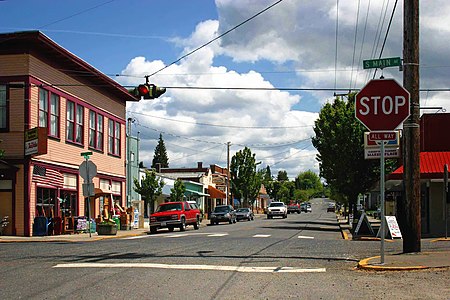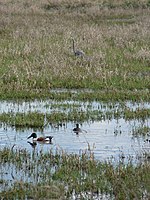Ridgefield, Washington
1909 establishments in Washington (state)Cities in Clark County, WashingtonCities in Washington (state)Populated places established in 1909Portland metropolitan area ... and 3 more
Ridgefield, WashingtonUse mdy dates from July 2023Washington (state) populated places on the Columbia River

Ridgefield is a city in northern Clark County, Washington, United States. The population was 10,319 at the time of the 2020 census, up from 4,763 in 2010, making it the fastest growing city in the state of Washington.Located within the Portland metropolitan area, Ridgefield is notable for the significant Native American history and connection to the Lewis and Clark Expedition. It is also the headquarters of the Ridgefield National Wildlife Refuge, a primary reserve for migrating waterfowl on the Pacific Flyway, and the home of the Ridgefield High School "Spudders" (reflecting the area's potato-farming heritage).
Excerpt from the Wikipedia article Ridgefield, Washington (License: CC BY-SA 3.0, Authors, Images).Ridgefield, Washington
Pioneer Street,
Geographical coordinates (GPS) Address Nearby Places Show on map
Geographical coordinates (GPS)
| Latitude | Longitude |
|---|---|
| N 45.815277777778 ° | E -122.72777777778 ° |
Address
Pioneer Street 1999
98642
Washington, United States
Open on Google Maps










